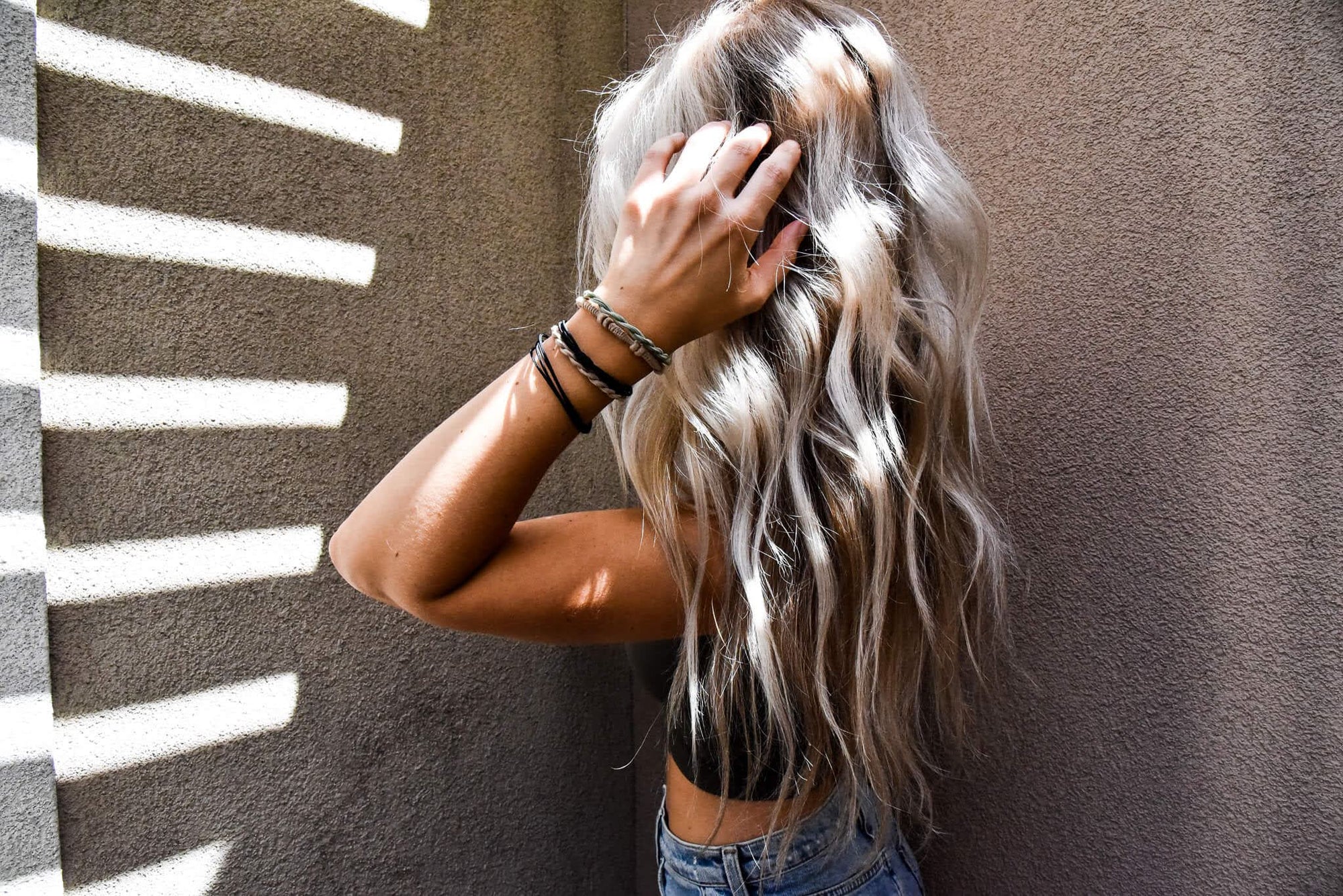

· By Carly Bitz
How Much Hair Shedding is Normal?
Eek. Ever looked at the shower drain and wondered, "Am I losing too much hair?!" I think we have all been there - everyone sheds hair. Scientists say it's totally normal to lose about 50-100 strands a day. On average we lose about 80 hairs a day, not much considering we have about 100,000 on our head. If you are losing a significant amount and it isn't growing back, it may be time to see a doctor.
Keep reading, because we are going to break down the reasons you may be losing more and what you can do to prevent it.
Wait, What Causes It?
Not to get overly scientific, but hair has a life cycle composed of three phases - Anagen (the active growing stage), Catagen (the hair fiber stops growing), and Telogen (the resting phase where the follicle eventually sheds).
Each follicle is independent and is at a different phase, so it's likely you won't know which hairs are ready to fall out. It's possible that you could be genetically predisposed to hair loss or hair thinning. Shout out to my ladies with fine hair like me, we may never have a thick head of hair - but there are products on the market that can help significantly.
It's not genetic, so what are the triggers?
If losing hair isn't in your genes, it is likely that your body is reacting to a trigger. If you can identify the cause, you can begin the journey to restore your locks. Below are some triggers that could potentially be the culprit.
• Stress
• Hormonal Imbalance (pregnancy, childbirth, the pill, etc)
• Weight Loss/Crash Dieting
• Age
• Vitamin Deficiencies
• Thyroid Imbalance
How Can I Fix It?
First and foremost, don't freak out. If you can identify the trigger, you will likely start to see improvements within 6 weeks.
Relax
Quite literally, stress can make you pull your hair out. Make sure to get adequate sleep so that the body has time to regnerate. Pencil in a time to chill out and do something you enjoy - even if it's just taking time to breathe. Your hair will thank you.
Evaluate your diet
Hair is made of protein, so it makes sense that adding a sufficient amount to your diet is essential for growth. Eggs are a great source of protein and biotin (if you have dietary restrictions nuts are also a win). In addition, complex carbohydrates like a handful of berries or whole wheat crackers will provide your hair the energy it needs to grow.
Supplements
If you have low levels of iron or vitamin deficiencies, consider adding a multivitamin to your diet. Adding a supplement to an already healthy diet can boost hair growth by supplying the necessary vitamins and nutrients.
Head Massage
Healthy hair starts with a healthy scalp. Stimulating the follicle produces thicker hair and encourages growth. Use your fingertips or a brush and make circles to encourage blood flow to the head. Bonus points if you use an oil while massaging!
Smart Styling and Accessorizing
Be kind to your hair. If you are experiencing shedding, avoid tight hairstyles that stress the follicles. Instead, try a loose messy bun and opt for a scrunchie instead of a hair tie. Take a break from heat styling and coloring your hair - summer is the ideal time to be gentle to your locks. Try some natural, air-dried styles that will have your hair feeling thicker and healthier by fall.
